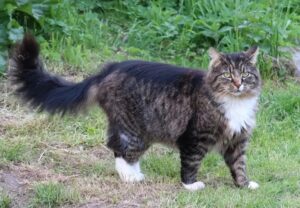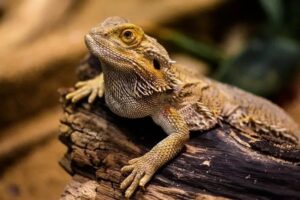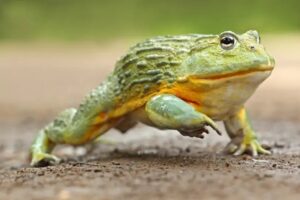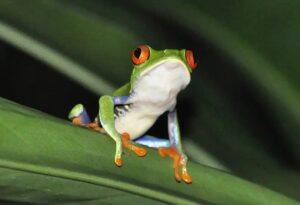Discovering Your Cat’s Personality Type: A Guide to the 5 Categories
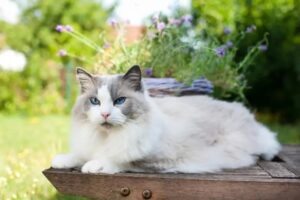
You probably believe, like the majority of people, that there is only one kind of cat personality. Aren’t all cats the same, regardless of whether they are affectionate, standoffish or both?
The answer turns out to be no. Animal researchers have identified five cat personality types, each with five distinct personality traits. Here we will go over each of these traits in detail, so that you can see what category your cat falls into.
It’s important to note that cats, like human personalities, may not fit neatly into a single box. Don’t force your cat into a box that they may not fit.
Five Cat Personality Types
The different personality types of cats were developed in part by Dr. Lauren Finka of University of Lincoln, England. Dr. Finka’s findings were based on 200 interviews with cat owners. She came up with these personality types.
The Human Cat
This cat has learned to share their space with humans. They are happy, affectionate and generally well-adjusted. This is the perfect cat for a pet. They will spend time with your family without being aggressive or violent.
On the flip side, a cat that is human is more likely than other cats to experience separation anxiety. They may also not like sharing their owner with other animals or humans.
2.The Cantankerous Cat
The human cat is the exact opposite. Cantankerous cats are not feral, but they don’t like being touched, picked-up, or interacted (except for being fed and receiving treats). These animals tend to be nervous and skittish, and they may not feel comfortable in your home.
Cantankerous cat are not warm and cuddly but because they are independent, they don’t care if you are gone all day. Cantankerous cats are also more affectionate than a human cat.
3.The Hunter Cat
The closest personality type to a feral feline is this one. Hunter cats are primarily interested in hunting. They may chase mice or steal toys that look like mice. The cats don’t understand that they will be fed for free, so spend most of their time trying to catch food.
Hunter cats are usually motivated more by killing than by affection.
The Cat’s Cat
They are very affectionate towards their feline friends and spend the majority of their time playing, cuddling, and grooming them.
Cat’s Cats may love humans too, but prefer to be with other cats (and who can blame them?). They do best in multicat households and may get depressed when kept as a single cat.
The Inquisitive cat
They spend the majority of their time exploring and sniffing around. Visitors are welcomed and thoroughly examined. They may or may tolerate affection, but they will definitely sniff them.
They enjoy playing with boxes, bags and mazes. These cats are bold and confident, but they don’t usually do well outside, because their confidence can lead them to trouble.
The Five Cat Personality traits
Researchers at the University of South Australia have developed five traits to help you understand your cat’s personality.
Instead of trying to generalize a cat’s personality, the authors chose to concentrate on the traits that make up its disposition.
Skittishness
Skittish cats are always on edge and nervous. They might not visit as often and never with strangers, but they will run for cover at the first sound of an unknown noise.
You should provide your cat with many places to hide so that they feel secure. Tall cat trees, especially those with built-in condos for your cats, are a good idea.
It may be worth trying to determine what is causing them to be skittish. You may find that they are afraid of another feline in the home, or something in your house might scare them. You can reduce their skittishness if you remove or reduce triggers.
Note that the term “skittishness” refers to a persistent nervousness, not the kind of nervousness cats show in a brand new environment. It’s normal for your cat to be on edge the first few days after you bring them home. You may be dealing with a nervous cat if the nervousness continues.
Outgoingness
This is in many ways the opposite of timidity. Outgoing cats have a curious nature (similar to the “inquisitive” personality type), so they will happily greet visitors or go through groceries you’ve just brought home.
You may also want to build a catio for them or place a cat-tree near the window. As with curious cats, it’s best to keep them indoors.
Take note of a cat who was once outgoing but has suddenly become reclusive. This can be an age-related change, but it could also indicate that your cat has a serious illness or is in pain.
Dominance
Dominant felines don’t get along with other cats. They can fight or bully submissive or timid cats.
It’s best to keep a dominant cat indoors, since they will likely fight with other cats. This increases their risk of getting seriously injured or contracting a disease such as feline HIV.
Dogs can also be dominated by dominant cats. It could result in your dog being just as nervous as your other cats, or the dog stopping the bullying immediately (and potentially fatally). It’s better to avoid letting your dominant cat interact or play with other animals.
You may not be able help a cat with its dominance. This may be due to the fact that you cannot control it. If this is the case, you should make sure that they are the only cat in the home or keep them separate from other pets at all times.
Spontaneity
They are unpredictable and impulsive. The cats may cuddle up on your lap and then rip around your apartment in high speed, seemingly without rhyme or reason.
They may behave less anxiously than other cats. You should still try to identify what is causing this impulsive behavior. It may stop if the triggers are removed.
Friendliness
They may welcome other kittens (and even dogs!) They may accept other kittens, and even dogs! They can be a great playmate for your cat, and will likely greet guests at the door.
In some cases, friendliness is an innate trait, but in the majority of cases it is the result from successful socialization. Your cat will be more tolerant of other animals and people if they spend more time with them, especially when they are young.
Like inquisitive cat, being friendly is not always a positive thing. This is especially true if your cat is allowed to go outside. A friendly cat is less likely to recognize that some animals are real threats before it’s too long.
What is the importance of your cat’s personality?
The personality type of a cat can be fun trivia that helps you learn more about your cat (and to feel closer to it).
Certain personality types, however, can have a dramatic impact on your cat’s life. Skittish cats are not likely to be comfortable in their environment. Anything you can do that will reduce their skittishness, will improve the quality of their life.
If you are thinking of adopting a kitten, you should also consider whether your current cats are dominant. You’d do better to wait until the dominant cats have moved on, before adding a new kitten.
Understanding your cat’s personality baseline is also crucial to spotting any changes. Like in humans, sudden personality changes are often a sign of something wrong. This could be a sign that the is sick, or that something in its environment is troubling it. It’s crucial to find out what the problem is as quickly as possible.
What type of personality does your cat have?
There’s a chance that your cat doesn’t fit neatly into one of the types or personality traits listed, but at least one will describe your pet well. This information is not required to be taken seriously, but it will help you better understand your cat.

